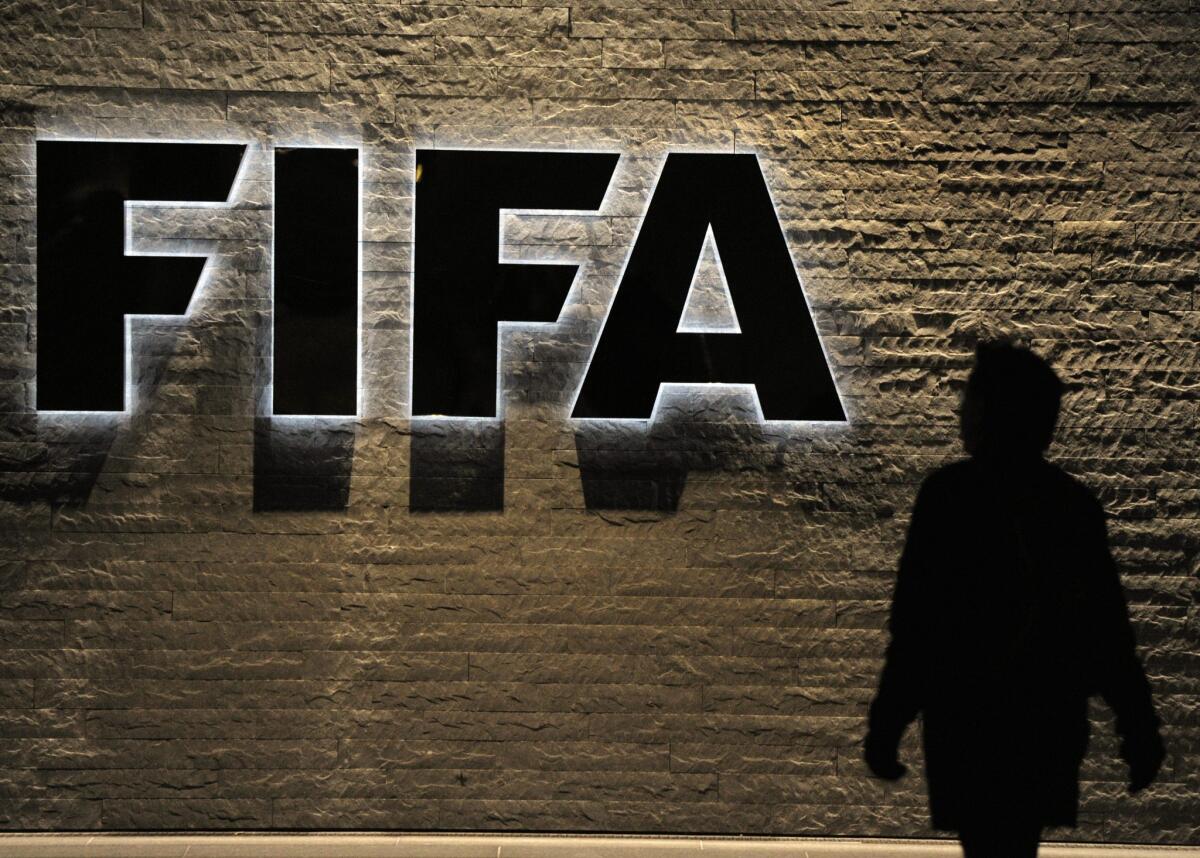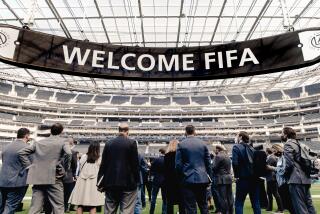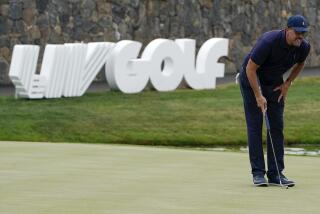Editorial: FIFA needs to deal with the shadow over soccer

When the Fédération Internationale de Football Assn. picked Qatar four years ago to host the 2022 World Cup soccer championship, it seemed an odd choice. The tiny oil-rich emirate has neither a history of nor the infrastructure for top-level soccer, and the summertime matches would be played in life-threatening triple-digit heat. On the other hand, FIFA’s decision meant that for the first time, a Middle Eastern country would host the world’s largest sporting event, an important milestone for the quadrennial tournament.
Now, if recent allegations reported by the Times of London prove true, there is a dark explanation for Qatar’s surprising victory over bids by the U.S., Australia and other larger nations: some $5 million in alleged bribes to secure FIFA site-committee votes. The key figure in the scandal, the report said, is Mohamed bin Hammam, a former Qatari soccer official and FIFA vice president. If true, that means that the culture of bribery reached high into the organization’s leadership. FIFA has already banned Hammam over unrelated conflicts of interest, and a ban even before that — related to allegations that he tried to bribe his way into the FIFA presidency — was voided on appeal. Others allegedly involved in the events reported by the Times of London, including Qatar’s bid committee, have denied wrongdoing.
The report has fueled demands that FIFA rescind its plans to hold the World Cup in Qatar and redo the site-selection process. If the bribery allegations turn out to be true, that is the right and reasonable response. (Frankly, Qatar’s offensive laws criminalizing homosexuality are also problematic, and this page recently urged FIFA to ensure humane treatment of foreign laborers living and working in dangerous conditions to help Qatar prepare for the tournament.)
But FIFA’s problems run deeper than Qatar. The association has also been drawn into political arguments in Brazil over the $11.5 billion that country is spending to meet FIFA demands for hosting the 2014 World Cup, which begins next week. And then there are allegations of match-rigging. According to an internal FIFA report obtained by the New York Times, a Singapore-based gambling ring tried to rig as many as 15 international scrimmages before the 2010 World Cup in South Africa — a scandal FIFA has allegedly kept under wraps.
FIFA has tremendous power in international sports, and that brings with it significant responsibilities. Yet these reports call into question the body’s professionalism. If governing votes can be bought and if matches can be rigged, then FIFA’s core credibility is in doubt. A full investigation into FIFA’s governance and management should be undertaken by disinterested outsiders, seeking an open accounting of what has occurred — and a blueprint for how FIFA could be reformed.
More to Read
A cure for the common opinion
Get thought-provoking perspectives with our weekly newsletter.
You may occasionally receive promotional content from the Los Angeles Times.






